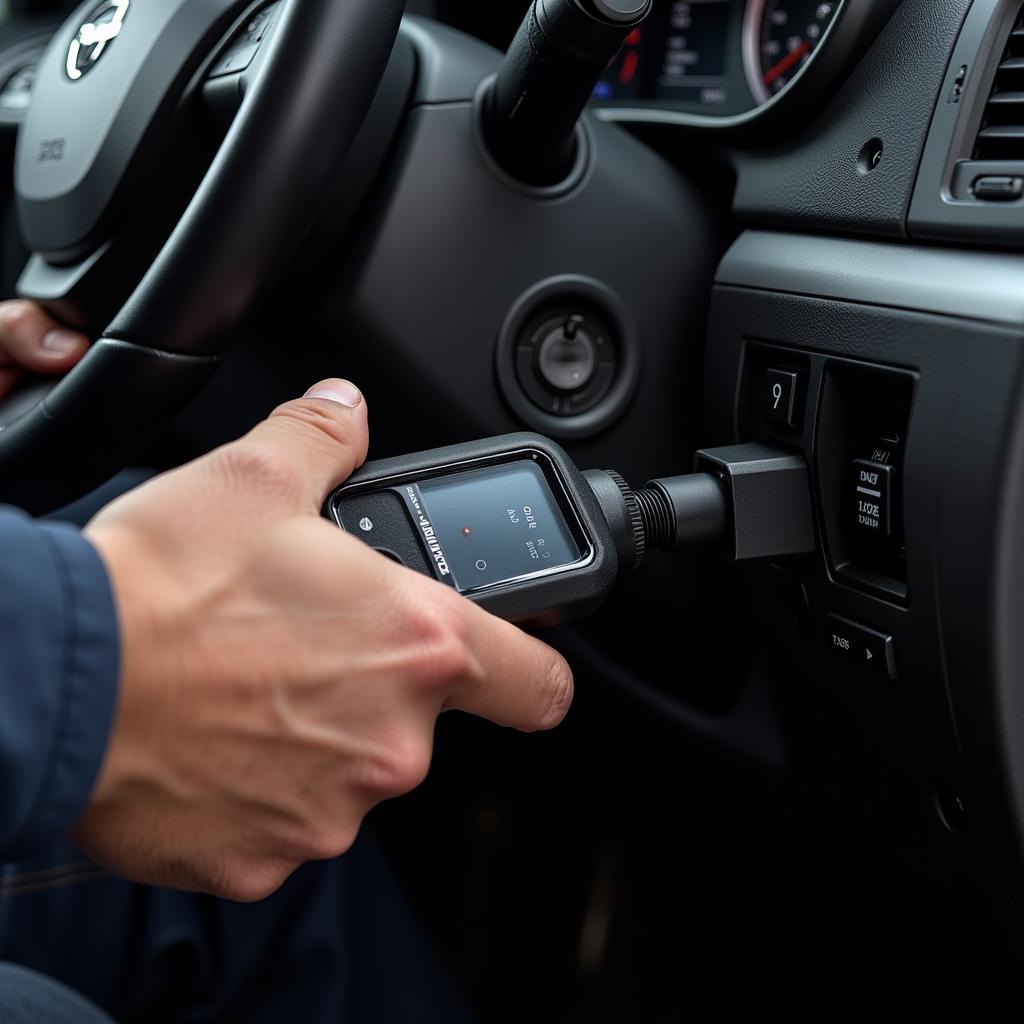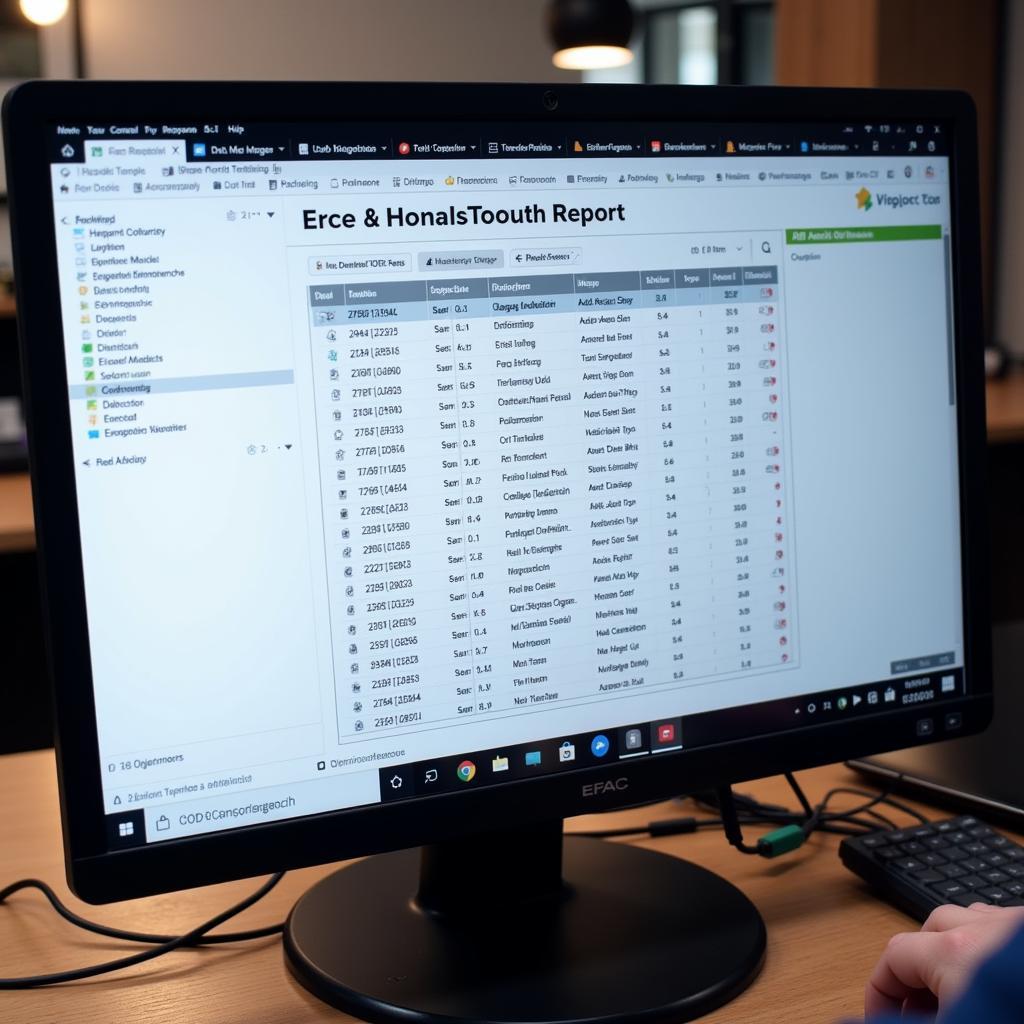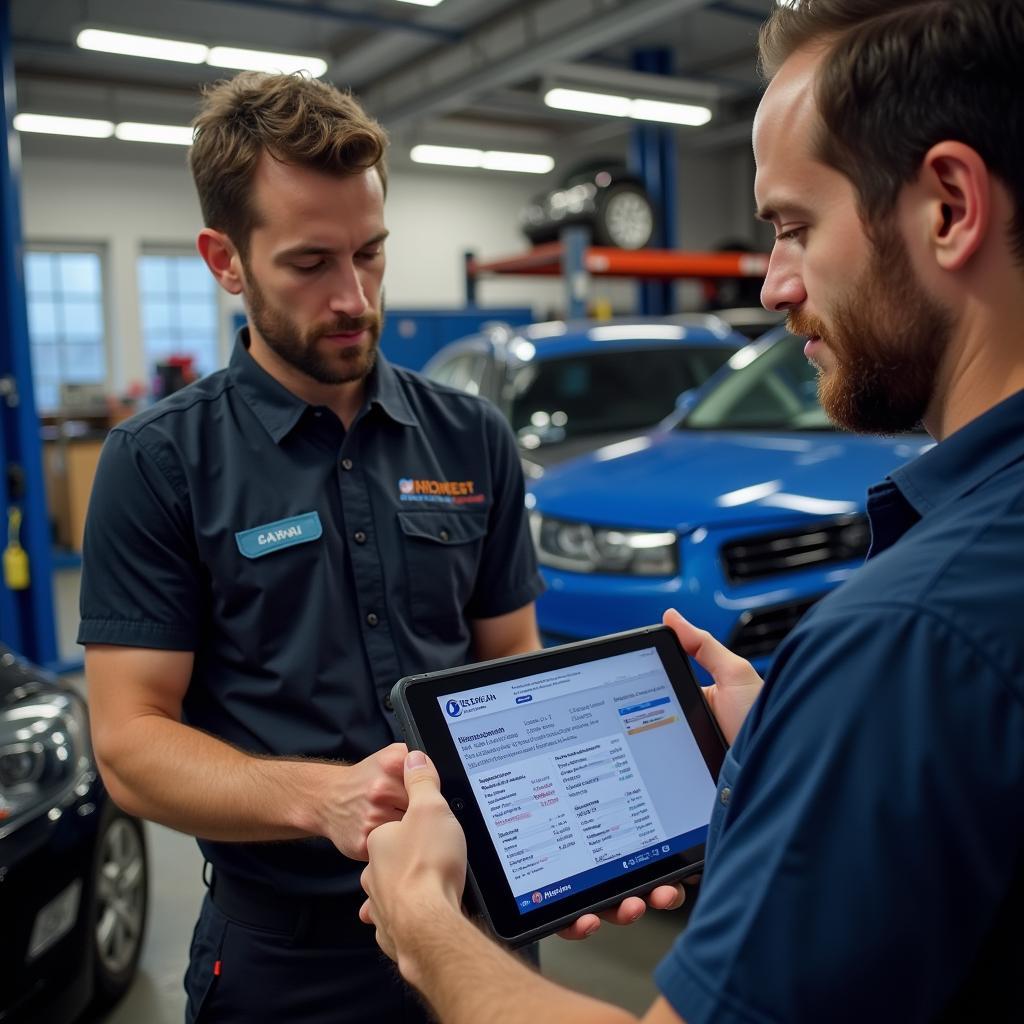A Computerized Car Diagnostic Check has become as routine a part of car maintenance as an oil change. Gone are the days of mechanics relying solely on their senses and experience to pinpoint car problems. Today, it’s all about plugging your vehicle into a sophisticated computer system that acts as a digital doctor for your car. But what exactly is a computerized car diagnostic check, and why has it become so essential?
Unveiling the Mystery: What is a Computerized Car Diagnostic Check?
 Computerized Car Diagnostic Equipment
Computerized Car Diagnostic Equipment
A computerized car diagnostic check, in essence, is a process that involves retrieving data from your vehicle’s computer system, often referred to as the Engine Control Unit (ECU). This data, a treasure trove of information about your car’s performance, is then analyzed to identify any existing or potential issues.
Think of it like this: Your car’s ECU is constantly monitoring and recording various parameters like engine speed, fuel injection timing, transmission operation, and emissions levels. A computerized diagnostic check taps into this data log, providing a detailed snapshot of your vehicle’s health.
Why is a Computerized Car Diagnostic Check Crucial?
 Car Diagnostic Report
Car Diagnostic Report
This digital diagnosis goes beyond identifying the ‘check engine’ light culprit. Here’s why it’s become an indispensable part of car care:
- Early Detection and Prevention: Diagnostic checks can often detect issues before they escalate into major problems, saving you costly repairs down the line.
- Accurate Diagnosis: Unlike visual inspections, which can be subjective, a computerized check provides concrete data, eliminating guesswork and ensuring accurate diagnosis.
- Improved Performance and Fuel Efficiency: By identifying and addressing issues affecting engine performance, a diagnostic check can help optimize your vehicle’s fuel efficiency.
- Increased Safety: Detecting faults in critical safety systems like airbags or ABS brakes ensures your vehicle is safe to drive.
What to Expect During a Computerized Car Diagnostic Check
- Connecting the Diagnostic Tool: A mechanic will connect a specialized tool to your car’s OBD-II port, usually located under the dashboard on the driver’s side.
- Retrieving Diagnostic Trouble Codes (DTCs): The tool will retrieve stored DTCs, which are essentially codes that correspond to specific issues detected by the ECU.
- Analyzing the Data: The mechanic, often aided by specialized software, will interpret the DTCs and other data to identify the root cause of the problem.
- Explaining the Results: You’ll receive a detailed report outlining the findings, including the severity of the issues and recommended repairs.
 Mechanic Explaining Diagnostic Results
Mechanic Explaining Diagnostic Results
Making Informed Decisions with DiagFixPro
A computerized car diagnostic check isn’t just about fixing problems, it’s about understanding your car’s health and making informed decisions about its maintenance. DiagFixPro empowers car owners and professionals with the knowledge and resources to navigate the world of computerized car diagnostics. From understanding DTCs to finding trusted mechanics, we’re your go-to source for everything car diagnostics.
Frequently Asked Questions
1. How often should I get a computerized car diagnostic check?
It’s generally recommended to get a check at least once a year or when your car’s ‘check engine’ light comes on.
2. Can I perform a computerized car diagnostic check myself?
While DIY diagnostic tools are available, it’s best to consult a qualified mechanic for accurate interpretation and diagnosis.
3. Are computerized car diagnostic checks expensive?
The cost can vary depending on the complexity of the issue and your location, but it’s generally a worthwhile investment compared to the cost of major repairs.
4. Will a computerized car diagnostic check void my warranty?
No, a diagnostic check itself won’t void your warranty. However, any unauthorized repairs performed based on the results might.
5. Can a computerized car diagnostic check tell me everything that’s wrong with my car?
While comprehensive, it might not detect every single issue. Some mechanical problems might require further physical inspection.
Need Assistance?
Contact us via WhatsApp: +1(641)206-8880 or Email: [email protected]. Our dedicated customer support team is available 24/7 to answer your questions and provide expert guidance.

Leave a Reply